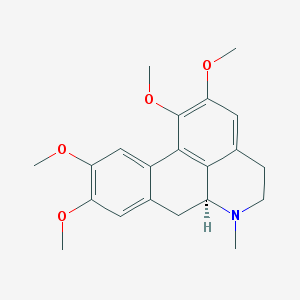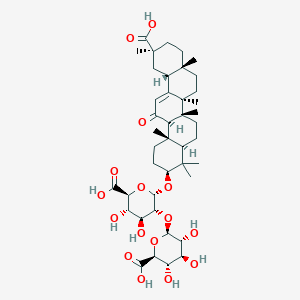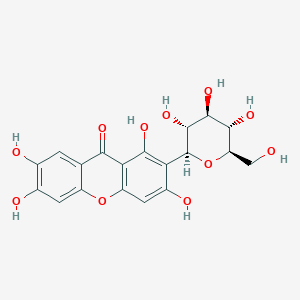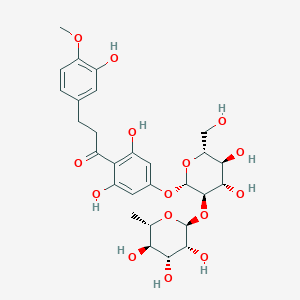Description
d-Glaucine has anti-inflammatory and bronchodilator properties. In some countries, it can be used as an antitussive.
Glaucine is an alkaloid found in several plant species, most notably in the yellow horned poppy (Glaucium flavum). It has been used for its various pharmacological effects. Here are some of the main benefits and applications of Glaucine:
- Cough Suppressant: Glaucine is most commonly recognized for its antitussive (cough suppressing) properties. It works by reducing the cough reflex, making it a useful component in cough syrups and lozenges.
- Bronchodilator: Glaucine has bronchodilatory effects, meaning it can help to widen the bronchi and bronchioles in the lungs, thereby easing breathing in conditions like asthma or bronchitis.
- Anti-Inflammatory Properties: Some studies suggest that Glaucine has anti-inflammatory effects, which can be beneficial in reducing inflammation in various conditions.
- Smooth Muscle Relaxant: Glaucine is known to relax smooth muscles, which can be helpful in treating conditions like spasmodic pain and intestinal cramps.
- Potential Anticancer Activity: Early research indicates that Glaucine might have anticancer properties, although this application is still in the exploratory stages and requires more extensive research.
- Analgesic Effects: There is some evidence to suggest that Glaucine may have pain-relieving properties.
- Use in Cosmetics: Glaucine is also used in cosmetic formulations, particularly in anti-cellulite products due to its potential to inhibit the formation of fat cells.





